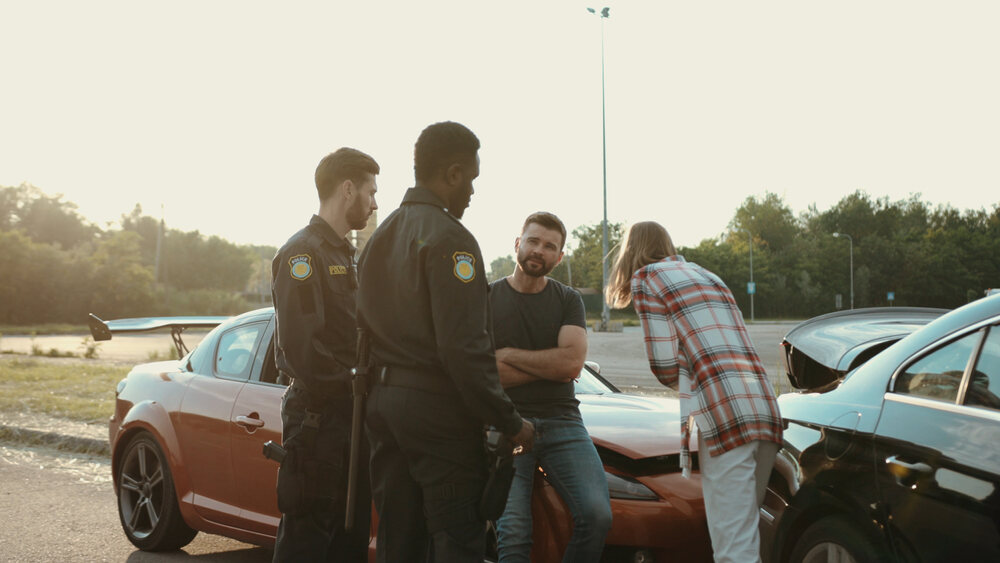Key Takeaways:
- Accurate information is absolutely crucial for Florida Highway Patrol crash reports.
- Double-check critical details such as names, dates, and vehicle information
- Document the scene thoroughly and keep personal copies of any and all reports
Accurate crash reports are essential for documenting incidents. They protect your rights and ensure a smoother insurance and legal process. The Florida Highway Patrol (FHP) plays a pivotal role in creating these reports, but the responsibility for accuracy doesn’t rest solely on law enforcement shoulders. Drivers, passengers, and witnesses also need to verify details and provide correct information.
This guide offers practical tips to ensure accuracy in Florida Highway Patrol crash reports, whether you’re involved in a crash, or requesting a report.
Why Accuracy Matters in FHP Traffic Reports
Accurate crash reports are the essential for insurance claims, legal disputes, and public records. In Florida, these documents could make or break your case. Any errors or omissions in a Florida Highway Patrol accident report could lead you to experience delays, misunderstandings, or even denied claims.
Ensuring accuracy not only helps you, but it also supports the broader goals of highway safety and accountability.
Tip #1: Confirm Personal Information
When you provide your information to the responding officer, ensure that your name, address and contact details are up-to-date and correct. This simple step can help you avoid any clerical errors that can complicate future communications.
If possible, double-check the officer’s transcription of your driver’s license, license plate, and vehicle registration to ensure it is accurate in the FHP traffic crash report.
Tip #2: Document the Scene
While the responding officer will document the incident, supplement their worn with your own records. Take photos of:
- Vehicle positions
- Road conditions
- Traffic signs or signals
This documentation can be invaluable if you need to contest inaccuracies in your FHP crash reports of file supplemental evidence.
Tip #3: Verify the Narrative
Crash reports often include a narrative describing how the crash occurred. When the officer reads you the summary, confirm that it aligns with your account. Discrepancies in FL highway patrol crash reports may impact how insurance companies, or the courts’ view fault.
Politely correct any errors before the report is finalized.
Tip #4: Request a Copy
After a crash, request a copy of the Florida Highway patrol traffic crash report as soon as it’s available. Florida law grants you access to reports within 10 days. Reviewing your copy ensures that details were recorded correctly and gives you the time to correct any mistakes.
Tip #5: Provide Witness Information
If any witnesses are present, share their contact details with the responding officer. Witness accounts can help corroborate your version of events. Ensure these statements are reflected correctly in your Florida Highway Patrol accident reports to avoid ambiguities.
Tip #5: Follow Up with the FHP
Mistakes can happen during data entry. If you notice errors in the final version of your FHP traffic crash report, contact the FHP office listed on the report promptly. Provide any supporting evidence or documentation to facilitate corrections.
How to Request Your Florida Highway Patrol Crash Reports

Obtaining your crash report is simple:
- Visit the FHP website or use the Florida Crash Portal.
- Enter details like the crash date, report number, and location.
- Pay any associated fees, typically $10.
This ensures you have the official version of the Florida Highway Patrol traffic crash report for your records.
The Importance of Accuracy in Legal and Insurance Claims
Insurance companies and attorneys rely on precise data from FL highway patrol crash reports to assess liability and damages. Even small errors, like a misspelled name or incorrect time can create disputes.
By staying proactive, you minimize the risk of costly errors impacting your case.
What to Do If Discrepancies Arise
If you find discrepancies in your FHP crash report, don’t panic. Errors can usually be resolved with the following steps:
- Contact the FHP to request corrections.
- Provide documentation supporting your claim.
- Consult an attorney if errors result in denied claims or legal issues.
We Can Help Ensure Your Crash Report Tells the Full Story
Accurate Florida Highway Patrol crash reports are the foundation for fair resolutions after an accident. By verifying details, documenting the scene, and following up on discrepancies, you can protect your interests.
But let’s face it—the time after an accident can be stressful, even traumatic. If you’re facing challenges with your traffic report or need guidance, consider reaching out to us and consulting our professionals. We can simplify the process and connect you with professional attorneys to ensure you have the support you need, when you need it.
